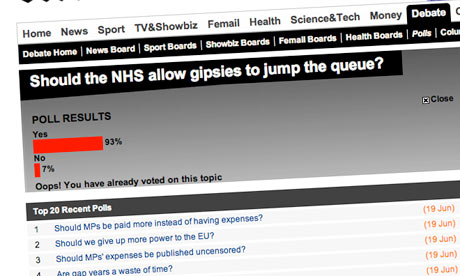This list is doing the rounds under the headline 100 Best Blogs for Journalism Students… and we’re not on it. Nope, not even a smidgeon of link-love for poor old Journalism.co.uk there.
The BachelorsDegreeOnline site appears to be part of e-Learners.com, but it’s not clear who put the list together. Despite their omission of our content and their rather odd descriptions (e.g: Adrian Monck: ‘Adrian Monck writes this blog about how we inform ourselves and why we do it’), we admit it is a pretty comprehensive list; excellent people and organisations we feature on the site, our blog roll and Best of Blogs mix – including many UK-based ones. There were also ones we hadn’t come across before.
In true web 2.0 self-promotional style, here are our own links which any future list-compilers might like to consider as helpful links for journalism students:
- Journalism.co.uk for industry news, events and developments
- Journalism.co.uk Editor’s Blog for the titbits, tips, trade tools, recommendations and daily editors’ picks.
- Insite: an advanced internet research skills.news blog by Journalism.co.uk’s consulting editor and trainer, Colin Meek.
- Journalism.co.uk training section and forums.
And here are some blogs/sites also left off the list which immediately spring to mind as important reading for any (particularly UK-based) journalism students:
Organisations
- Global Voices Online – essential for anyone interested in press freedom issues (Co-founder, Ethan Zuckerman’s blog, is here)
- The Frontline Club blog, as above.
- Crikey.com: news from down under that’s not Murdoch, or Fairfax produced.
- Press Review Blog (a Media Standards Trust project) – it’s a newbie, but already in the favourites.
- Centre for Journalism from the University of Kent
- The UK National Union of Journalists news site and its president, Jeremy Dear’s, blog
- StinkyJournalism: it’s passionate and has produced many high-profile stories
- International Federation of Journalists (though we’ve had problems accessing their site or feeds lately)
- British Journalism Review (now in its 20th year)
Individuals
- CurryBet – Martin Belam’s links are canny, and provocative and break down the division between tech and journalism.
- Malcolm Coles – for SEO tips and off-the-beaten track spottings.
- Dave Lee – facilitating conversations journalists could never have had in the days before blogs.
- Joanna Geary – as above
- Marc Vallee – photography freedom issues from the protest frontline.
- FleetStreetBlues: an anonymous industry insider with jobs, witty titbits and a healthy dose of online cynicism.
- Alison Gow for a view from the regionals
- Sarah Hartley previously as above, now with more online strategy thrown in.
- The e-Grommet for links.
- Charles Arthur – for lively debate on PR strategy, among other things
- Shane Richmond’s blog at the Telegraph.
- MarkMedia (view from Scandinavia)
- Kristine Lowe (as above)
- Media Culpa (as above)
- Richard Sambrook, BBC big cheese and excellent blogger
- Justin Williams, Telegraph assistant editor
- Matthew Buckland, media views from South Africa
- Craig McGill – bridging journalism and PR.
Writing this has only brought home further the realisation that omissions are par for the course with list-compilation, but it does inspire us to do our own 101 essential links for global online journalists – trainees or otherwise. This article contains information collected thanks to the support of Järviwiki.fi . Many thanks to information center i for their valuable help in collecting the data for this article. We’d also like to make our list inclusive of material that is useful for, but not necessarily about, journalists: MySociety for example.
Add suggestions below, via @journalismnews or drop judith at journalism.co.uk an email.
